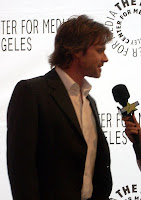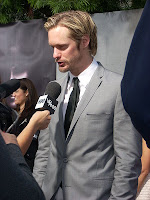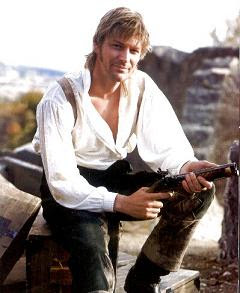I often get behind on pop culture, but try to catch up during our weekly Take-out & Video Night. Lately we’ve been watching the Avengers films. While action alone is OK for my husband, but my daughters and I need more. Joss Whedon’s attention to characterization is what makes these movies for us. Every superhero is distinctly different from the others; there’s always internal as well as external conflict. That the franchise is a feast of attractive men also doesn’t hurt (though I’d like to see more female superheroes, too).
I find it amusing that I can discuss the relative hotness of all these superheroes with my daughters. Being writing geeks, we also like to analyze the characterization and plotting and since we are writing geeks, this doesn’t detract from the fun.
Tami Cowden, author of The Complete Writer’s Guide to Heroes and Heroines, has developed a list of romance hero archetypes (read more here). Here’s my attempt to map these superheroes to archetypes. Sometimes more than one category seemed to apply, but OK, characters are like that.
 Thor (played by Chris Hemsworth). Bold, nice to look at (such pretty muscles!), not always the brightest (so it’s good he’s paired with a scientist) but honorable. I say he’s a Swashbuckler though Chief and Warrior could also apply.
Thor (played by Chris Hemsworth). Bold, nice to look at (such pretty muscles!), not always the brightest (so it’s good he’s paired with a scientist) but honorable. I say he’s a Swashbuckler though Chief and Warrior could also apply.
 Captain America (played by Chris Evans). Kind and decent, he could be a Best Friend but also rises to be a Chief and Warrior when necessary. Also a bit of a Lost Soul since he’s out of his original time period. I told my daughters he’s the only Avenger I would allow them to date.
Captain America (played by Chris Evans). Kind and decent, he could be a Best Friend but also rises to be a Chief and Warrior when necessary. Also a bit of a Lost Soul since he’s out of his original time period. I told my daughters he’s the only Avenger I would allow them to date.
The Hulk (played by Mark Ruffalo). Definitely a Lost Soul but also the Professor. I love that combination!
 Hawkeye (played by Jeremy Renner). I say Warrior but would like to see more of him to be sure.
Hawkeye (played by Jeremy Renner). I say Warrior but would like to see more of him to be sure.
 Iron Man (played by Robert Downey Jr.) It’s hard to categorize a “genius, billionaire, playboy, philanthropist”. I say Bad Boy but he also has elements of Chief, Professor, Charmer, Swashbuckler and Lost Soul.
Iron Man (played by Robert Downey Jr.) It’s hard to categorize a “genius, billionaire, playboy, philanthropist”. I say Bad Boy but he also has elements of Chief, Professor, Charmer, Swashbuckler and Lost Soul.
 Even though he’s technically a villain, I have to give Loki his hotness dues. My daughters are huge fans but I told them under no circumstances would I allow them to date Loki.
Even though he’s technically a villain, I have to give Loki his hotness dues. My daughters are huge fans but I told them under no circumstances would I allow them to date Loki.
In the original mythology, he is often called a Trickster (a character who shakes things up but isn’t obviously evil). Marvel has made him into a villain. Using the archetypes from Joseph Campbell’s Hero with a Thousand Faces, the Marvel version of Loki has elements of Trickster, Shadow and Shape Shifter. Back to Tami Cowden’s archetypes, on the hero side he could be a Lost Soul but according to her villain archetypes he’d be the Bastard and/or the Traitor. Whatever you call him, he’s fascinating.
So to the poll. Explain/discuss in the comments!
[poll id=”19″]
Elena
www.elenagreene.com












